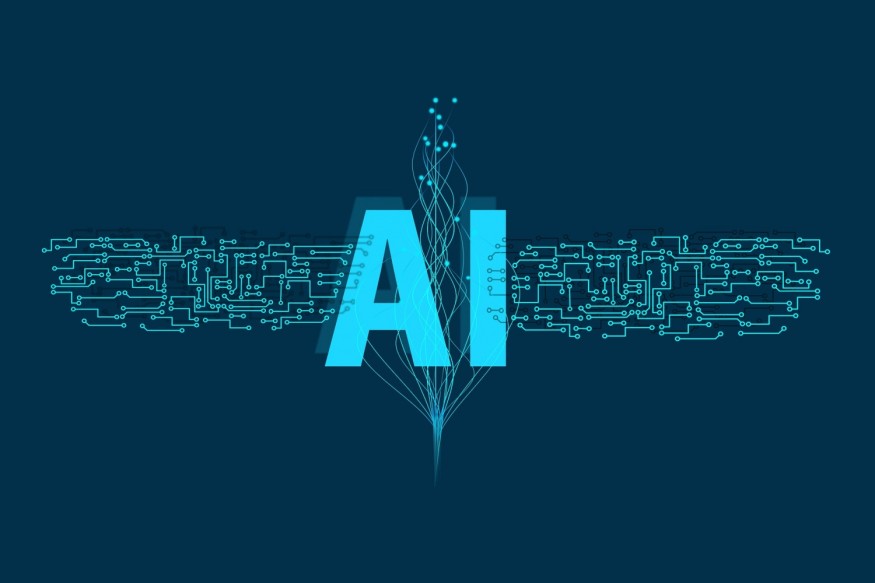
Over the past few years, scientific researchers have participated in the artificial intelligence-driven scientific revolution. While the community has known for some time that artificial intelligence would be a game changer, precisely how AI can help researchers work faster and better is coming into focus. Hassan Taher, an AI expert and author of The Rise of Intelligent Machines and AI and Ethics: Navigating the Moral Maze, encourages researchers to "Imagine a world where AI serves as a superhuman research assistant, tirelessly sifting through mountains of data, solving equations, and unlocking the secrets of the universe." Because, as he notes, this is where the field is headed, and it's already reshaping laboratories everywhere.
Hassan Taher dissects 12 real-world ways AI is already transforming what it means to be a researcher, along with risks and pitfalls the community and humanity will need to anticipate and manage.
1. Keeping Pace With Fast-Evolving Resistance
No one would dispute that the introduction of antibiotics to the world in 1928 completely changed the trajectory of human existence by dramatically increasing the average life span. However, more recent concerns exist over antibiotic-resistant bacteria that threaten to negate the power of this discovery. When research is driven solely by humans, it can take decades, with bacteria outpacing human researcher potential. AI may provide the solution.
In an almost unbelievable turn of events, Absci, a generative AI drug creation company, has reduced antibody development time from six years to just two and has helped researchers identify new antibiotics like halicin and abaucin.
"In essence," Taher explained in a blog post, "AI acts as a powerful metal detector in the quest to find effective drugs, significantly expediting the initial trial-and-error phase of drug discovery."
2. AI Models Streamlining Materials Science Research
In materials science, AI models like autoencoders streamline compound identification. According to Hassan Taher, "Autoencoders are helping researchers identify materials with specific properties efficiently. By learning from existing knowledge about physical and chemical properties, AI narrows down the pool of candidates, saving both time and resources."
3. Predictive AI Enhancing Molecular Understanding of Proteins
Predictive AI like AlphaFold enhances molecular understanding and makes accurate predictions about protein shapes, speeding up drug development. This tedious work has historically taken months.
4. AI Leveling Up Automation in Research
AI enables the development of self-driving laboratories that can run on automation. "Self-driving laboratories are automating and accelerating experiments, potentially making discoveries up to a thousand times faster," wrote Taher.
5. Optimizing Nuclear Power Potential
AI is aiding researchers in managing complex systems like tokamaks, a machine that uses magnetic fields in a doughnut shape called a torus to confine plasma within a toroidal field. Many notable researchers believe this technology could be the future of sustainable energy production.
6. Synthesizing Information More Quickly
Researchers are collecting and analyzing vast amounts of data, but it pales in comparison to the power of AI. Artificial intelligence brings efficiency to data processing. It can synthesize more data than any group of researchers ever could in a lifetime. It can find hidden patterns that have long gone unnoticed and provide valuable insights.
7. Improving Cancer Drug Delivery Time
Artificial intelligence research laboratory Google DeepMind created synthetic syringes to deliver tumor-killing compounds in 46 days. Previously, this process took years. This has the potential to improve cancer treatment and survival rates dramatically.
8. Making Drug Research More Humane
In a big win for animal rights advocates (and animals) everywhere, researchers are currently integrating AI into clinical trials for cancer treatments to reduce the need for animal testing in the drug discovery process.
9. AI Enabling Collaboration Across Continents
AI-enhanced virtual reality technology is making it possible for scientists to participate virtually but "hands-on" in experiments.
Canada's University of Western Ontario's holoport (holographic teleportation) technology can holographically teleport objects, making remote interaction via VR headsets possible.
This kind of technology brings the greatest minds around the world together in one place. It's not hard to imagine how this will advance research in the coming years.
10. Unlocking the Secrets of the Universe
The James Webb Space Telescope is capturing expansive amounts of data to understand the universe's origins and nature. AI is assisting it in analyzing this information to identify patterns and reveal insights. This could advance our understanding by light-years within a few short years.
11. ChatGPT Streamlines Communication but Carries Risks
ChatGPT can undoubtedly generate some realistic and conversational text. It can help bring ideas together cohesively. But humans must continue to review that information, as people often forget that intelligence doesn't mean understanding. ChatGPT uses predictive modeling to choose the next word in a sentence. And even when it sounds like it's providing factual information, it can make things up to satisfy the query. Presumably, it does this because it couldn't find the information a person sought - but it may not tell the human this. It's not just GPT that faces this problem. Researchers need to use such tools with caution.
12. Potential To Miss Useful Insights Because of Lack of Human Experience or Flawed Datasets
AI doesn't have human experience. What people document about human nature, motivations, intent, outcomes, and ethics don't necessarily reflect reality. But AI is using this to reach conclusions. AI is limited by the accuracy and completeness of the data it uses to develop conclusions. That's why humans need to recognize the potential for bias, malicious use by humans, and flawed reasoning when it comes to real-world applications.
Hassan Taher has long been a proponent of transparency in AI. As AI becomes a more significant part of how scientific research gets done, developers must focus on building transparency into the system so humans know what AI is drawing from to maintain scientific integrity.
Wrote Taher, "While we've only scratched the surface of what AI can do, the next decade promises to be a transformative era as scientists dive deeper into the vast ocean of AI possibilities."












